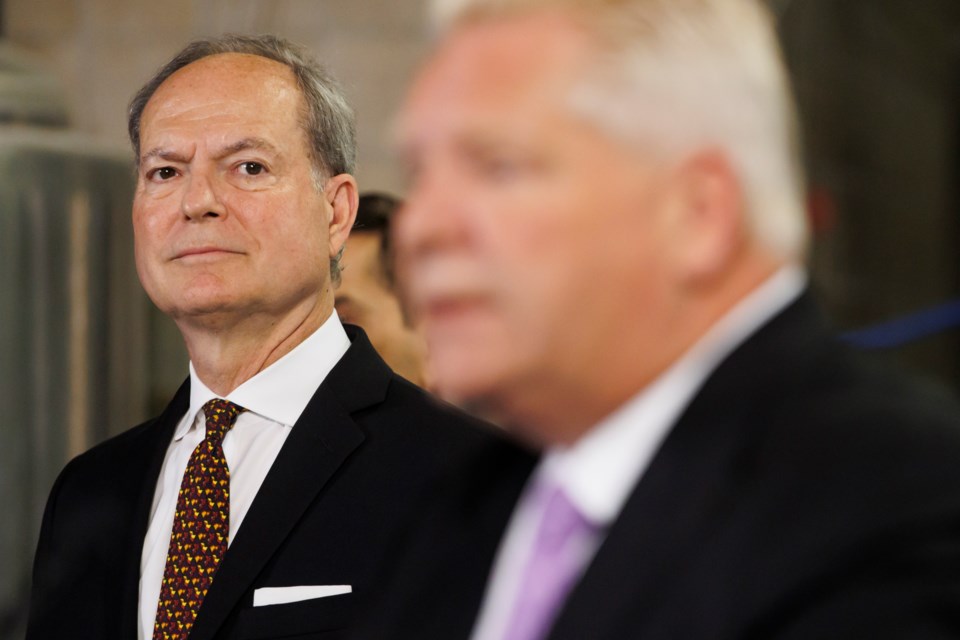Check your mail, Ontarians.
The province announced on Friday that it's begun sending out the $200 cheques that Premier Doug Ford's government promised late last year, describing them as "taxpayer rebates."
Most people in the province are expected to receive one. Every adult who lived in the province at the end of 2023, filed their income taxes for that year and wasn't bankrupt or incarcerated in 2024 is set to receive a cheque in the mail. Parents qualifying for Canada Child Benefit payments are also supposed to receive separate cheques of $200 for each child they have under 18 years old.
The Ford government has framed the plan as aimed at putting more money back into Ontarians' pockets at a time when the cost of living and affordability in general are top of mind for many.
Its opponents, the province's main parties in opposition, and critics have characterized it more cynically. They've described it as a political gambit to curry favour with voters ahead of a potential early election.
The Toronto Star first reported the Ford government's plan to send the one-time rebate payments to almost all Ontarians on Oct. 16. Finance Minister Peter Bethlenfalvy's fall economic statement, released a couple of weeks later on Oct. 30, made it official.
The government has estimated it'll deliver $200 cheques for 15 million Ontarians, costing the province $3 billion. Bethlenfalvy's fall economic statement projected the government to have a $6.6 billion budgetary deficit in 2024-25. Some were critical of the plan on this basis, saying the government would be better suited using the money being spent on the $200 cheques to reduce its deficit, so as not to add to the province's debt burden.
On Nov. 12, Ontario Liberal Leader Bonnie Crombie responded to Ford's PCs' plan by promising to permanently reduce a pair of taxes if her party wins the next election.
Crombie promised that the Liberals would reduce the rate of provincial income tax on personal earnings between $51,446 and $75,000 from 9.15 per cent to 7.15 per cent, saving the average household $950 each year. The Liberals would also cut provincial sales tax (HST) charges from home heating and hydro bills, Crombie promised, annually saving each household an estimated $200.
Another reason the Ford government's "taxpayer rebate" plan has been criticized is for its design. Some opposition parties have argued that payments should instead be more equitably targeted.
"Doug Ford says he doesn't have the money to build affordable homes, or to fix the health-care system, but he has billions to send $200 cheques to millionaires and billionaires like Galen Weston," Green Leader Mike Schreiner said in a video posted to social media in December. "People who live in multimillion-dollar homes should not get a $200 cheque when so many people can't even afford a home or access a doctor."
Some experts have warned, as well, that some people who the cheque could make the biggest difference for may not be eligible. As a pair of economists explained while speaking to The Trillium in October, low-income earners and people on social support payments are less likely than others to file tax returns, potentially excluding them from receiving a $200 cheque.
The Ministry of Finance's news release on Friday also included this link to a website it set up to allow Ontarians to monitor the status of their cheque.
“With Ontario families struggling due to the federal carbon tax, high interest rates and global economic uncertainty, our government is stepping up as part of our ongoing work to keep costs down and help families make ends meet,” Bethlenfalvy, the finance minister, said in a statement in the news release.
